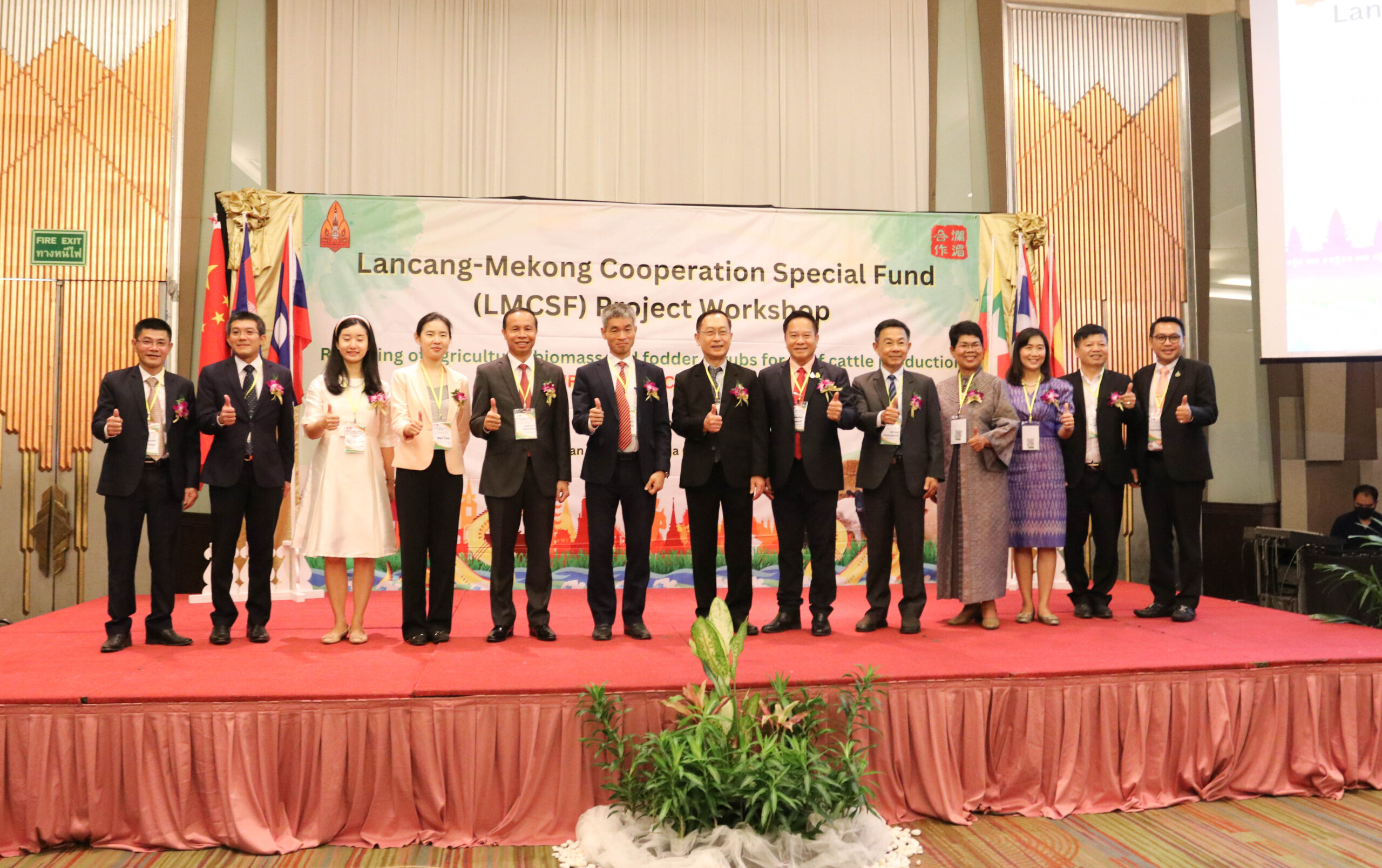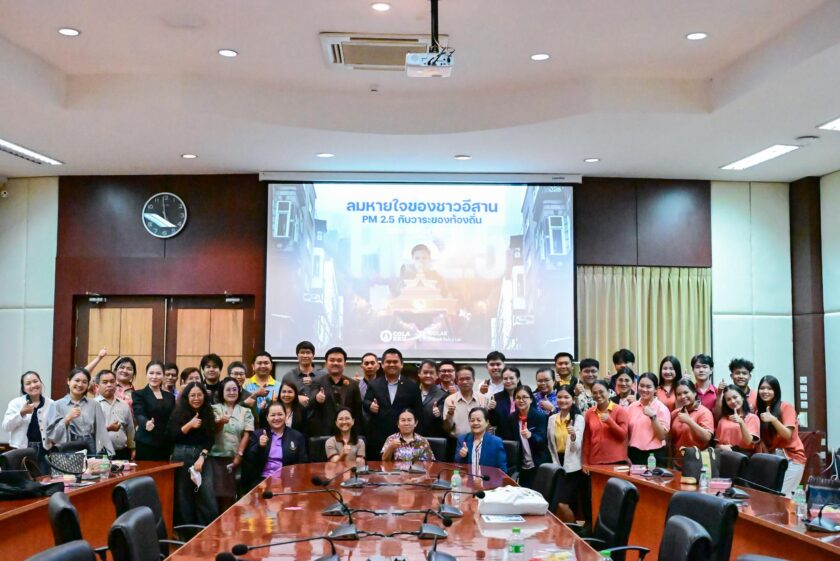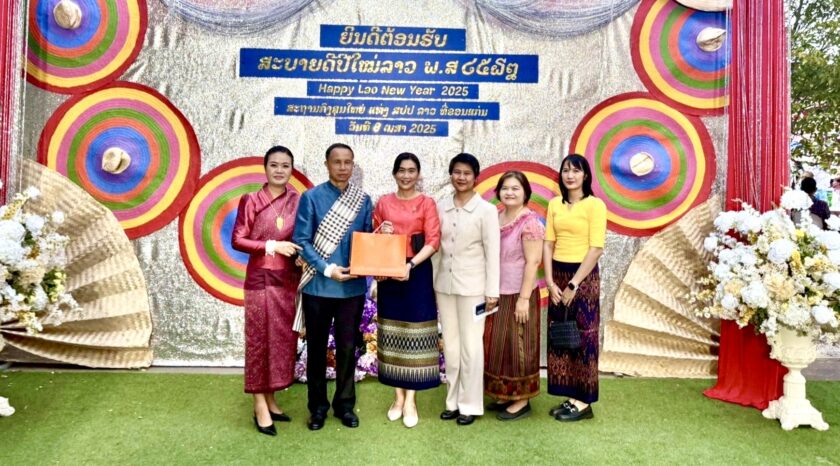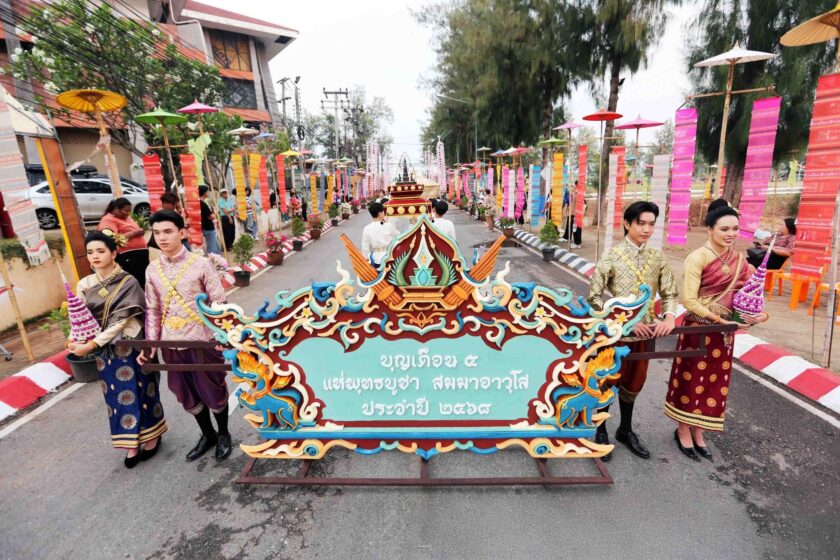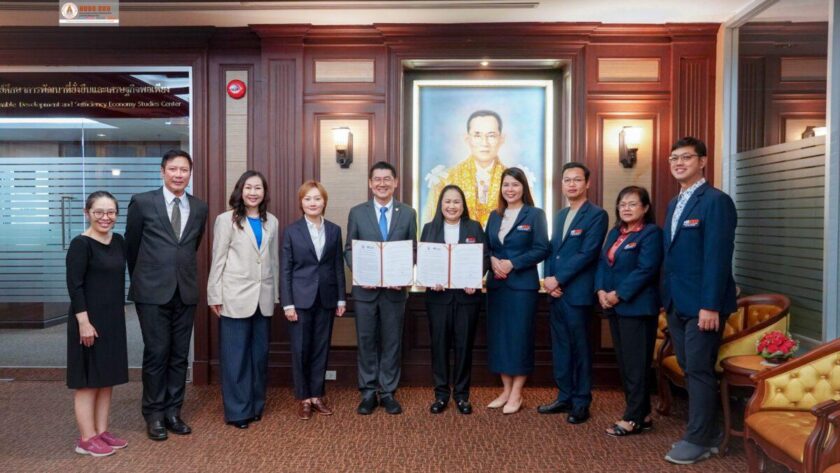Monday March 27, 2023 at 08.30 a.m. – Tropical Feed Resources Research and Development Center (TROFREC) of Khon Kaen University organized the Lancang-Mekong Cooperation Special Fund (LMCSF) Project Workshop under the topic: “Recycling of Agricultural Biomass and Fodder Shrubs for Beef Cattle Production”. Prof. Metha Wannaphat, Ph.D., Head of the Project delivered the reporting speech, while Assoc. Prof. Darunee Jotishyangkoon, Ph.D., Dean of the Faculty of Agriculture welcomed the distinguished guests including Assoc. Prof. Charnchai Panthongviriyakul, M.D., President of Khon Kaen University, who made the opening speech. Among the distinguished guests were Consuls General of the People’s Republic of China, People’s Democratic Republic of Laos, Vietnam. Over 80 researchers and administrators, including representatives from Cambodia, China, Laos, Vietnam, and Thailand attended the workshop, which was held at Orchid ballroom 1, Pulman Raja Orchid Hotel, Khon Kaen.

The Recycling of Agricultural Biomass and Fodder Shrubs for Beef Cattle Production Project is aimed at increasing the competency of new potential researchers in the member countries with technologies and innovations of animal feeding by using left over agricultural residues and to increase the competency of high potential researchers with new research methods for testing fermentation efficiency and for reducing production of methane gas. At the same time, the nutritional values of animal feeds are assessed as well as the quantity and quality of beef. The overall goal is for sustainable production of beef cattle.

Prof. Metha Wannaphat, Ph.D., Head of the Project reported that the international conference on “Recycling of Agricultural Biomass and Fodder Shrubs for Beef Cattle production RABIF-BeefC” or the recycling of utilization of biomass and animal feed resources to increase the efficiency of beef cattle production is the Project supported by the Lancang-Mekong Cooperation Special Fund (LMCSF) of China, the project period of which is 3 years from 2022-2024.
“It is obvious that at present the needs for protein food from animal are increased worldwide due to the growth of the world population. The RABIF-BeefC Project has as its goal to produce high-quality beef with the use of agricultural residues. Emphasis is on reduction of methane gas production in animals’ rumen by supplementing the beef cattle with phytonutrient pellets.”
Assoc. Prof. Darunee Jotishyangkoon, Ph.D., Dean of the Faculty of Agriculture of Khon Kaen University added, “Production of quality beef while reducing greenhouse gases is challenging but very important. The Project today is carried out to enhance the knowledge among new researchers from the member countries of Lancang-Mekong, in the use of innovations for using more agricultural residues as animal feeds. We are confident that under the lead of Prof. Metha Wannaphat, a highly competent world researcher, all of the researchers will reach the utmost goal, especially when it comes to empowering new-face researchers and promoting the environmental friendly beef cattle industry.”

Assoc. Prof. Charnchai Panthongviriyakul, M.D., President of Khon Kaen University said in his opening speech that he and the Project team were really grateful to the People’s Republic of China for supporting the Project under the lead of Professor Metha Wannaphat, who is one of the world’s leading researchers in animal science. “Professor Metha Wannaphat is a High-end Foreign Expert, who was granted a Yunnan Friendship Award from the Government of China in 2020. New-generation researchers with high potential from Cambodia, China, Laos, Vietnam and Thailand, under his lead, will share their ideas and experiences at this event in the use of residues from farming as feeds for ruminants and at the same time reducing methane gas emission. It is highly expected that all participants will share their knowledge and technologies for the benefits of farmers and entrepreneurs. It is believed that all participants will benefit from the workshop and will go back to promote beef cattle production by the new technologies. The optimal advantages will be reduction of methane emission and global warming.”

The workshop is scheduled for 3 days, featuring lectures by the world’s renowned researchers, visit to laboratories, real practice in U-lime Straw production, making phytonutrient pellets (PTNP) from fruit peels, and presentation of plans of each country in the LMC group. There were 80 participants on the first day who are young researchers keen to learn and participate closely in the circle of beef cattle production. It is hoped that the knowledge and experiences obtained from this Project will promote the beef cattle farming in each member country: Cambodia, Lao PDR, Vietnam, Thailand, Myanmar, and China.
News: Rawiporn Saisaenthong
Photos: Sasitorn Sungnart

